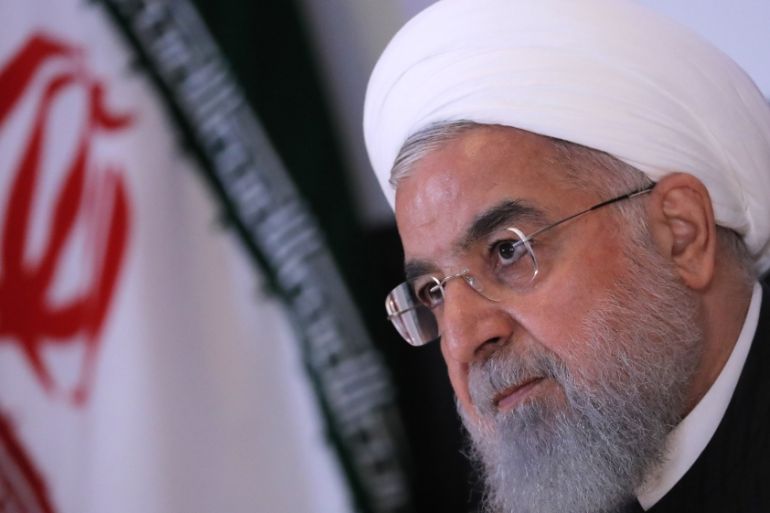Hassan Rouhani: US seeking regime change in Iran
Washington using psychological and economic warfare in its pursuit, the Iranian president said in a speech.

The United States is seeking a regime change in Iran, President Hassan Rouhani has said in a speech broadcast on state TV.
The US is using “psychological and economic warfare” and questioning the legitimacy of the Islamic Republic to “pursue regime change” in Iran, Rouhani said on Sunday while commemorating the beginning of the academic year at Tehran University.
“Reducing the legitimacy of the system is their final goal. When they say getting rid of, regime change in their own words, how does regime change happen? Through reducing legitimacy, otherwise, a regime doesn’t change,” Rouhani said.
Tensions have ramped up between Iran and the US after President Donald Trump withdrew from a multilateral agreement on Iran’s nuclear programme in May and reimposed sanctions in August.
Under the deal signed in Vienna with six world powers – the US, UK, France, Germany, Russia, China and the European Union – Iran scaled back its uranium enrichment programme and promised not to pursue nuclear weapons.
In exchange, international sanctions were lifted, allowing it to sell its oil and gas worldwide. However, secondary US sanctions remain.
The International Atomic Energy Agency (IAEA) has repeatedly confirmed that Tehran has been meeting its nuclear commitments fully.
The US is planning on imposing additional sanctions targeting Iran’s oil sector in November.
Earlier this month, the United Nations’ top court issued an interim order to the US to lift sanctions linked to humanitarian goods and civil aviation imposed against Iran – a move Tehran welcomed.
“On humanitarian grounds, the US must remove by means of its choosing any impediment to the free exportation to Iran of goods involving humanitarian concerns,” the International Court of Justice (ICJ) said in its ruling on October 3.
The ICJ’s rulings are binding, but it has no power to enforce them.
“The decision proved once again that the Islamic Republic is right and the US sanctions against people and citizens of our country are illegal and cruel,” Iran’s foreign ministry said in a statement.
Tehran had urged the ICJ to order Washington to suspend the sanctions temporarily while it hears Iran’s case in full, a process that could take years.